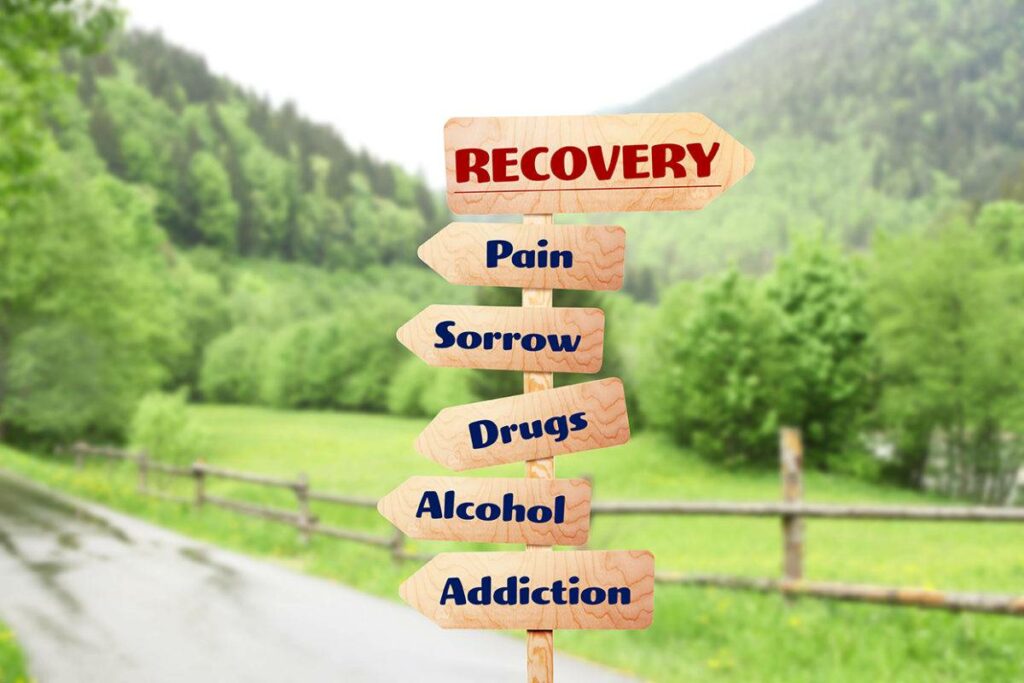Addiction is a serious problem that affects millions of people all over the world. If you or someone you know is struggling with addiction, it is important to seek help. Addiction therapy can be an effective way to overcome addiction and start on the path to recovery. In this blog post, we will discuss what addiction therapy is and how it can help you or your loved one recover from addiction.
Contents
What Is Addiction Therapy?
 Addiction therapy is a type of counseling that helps people recovering from addiction to learn new coping skills and develop a support system. Addiction therapy can be done in a group or individual setting, and it may last for a few weeks or months.
Addiction therapy is a type of counseling that helps people recovering from addiction to learn new coping skills and develop a support system. Addiction therapy can be done in a group or individual setting, and it may last for a few weeks or months.
The goal of addiction therapy is to help people addicted to substances like alcohol or drugs learn how to live a sober life. Addiction therapy can teach people recovering from addiction how to deal with triggers, manage cravings, and cope with relapse.
Addiction therapy is an important part of recovery from addiction. It can help people addicted to substances learn how to live a sober life and develop new coping skills. If you or someone you know is struggling with addiction, consider seeking out addiction therapy. It could be the first step on the path to recovery.
How Does It Work?
It is important to understand how addiction therapy works in order to make the most of it. Addiction therapy usually consists of four main elements:
- Education about addiction and its causes
- Identifying and addressing any underlying mental health issues
- Developing healthy coping mechanisms
- Building a support network
Each of these elements is important in its own right, but together they form a comprehensive approach to overcoming addiction. For example, during a session, you may learn about the science behind addiction and how it affects the brain. This understanding can help to identify any negative thinking patterns that may be fuelling your addiction.
In subsequent sessions, you can then start to work on developing healthy coping mechanisms to deal with these thoughts and triggers. And finally, building a support network of friends, family, or fellow recovering addicts can provide the encouragement and accountability you need to stay on track.
So, how does addiction therapy work? Addressing the root causes of addiction and providing tools to overcome them, gives you the best chance at a lasting recovery. If you or someone you know is struggling with addiction, don’t hesitate to reach out for help today!
What Techniques Are Used In Addiction Therapy?
 Therapy is very technical and requires a lot of skill. The techniques used in addiction therapy vary depending on the type of addiction and the individual’s needs. However, some common techniques include:
Therapy is very technical and requires a lot of skill. The techniques used in addiction therapy vary depending on the type of addiction and the individual’s needs. However, some common techniques include:
Cognitive-behavioral therapy
This type of therapy helps individuals to identify and change negative thinking patterns that may be fuelling their addiction. CBT is always an integral part of addiction therapy. It works through a process of identifying thoughts, emotions, and behaviors that contribute to addiction. Once these are identified, the individual can start to work on changing them.
Motivational interviewing
This technique is used to help individuals who are ambivalent about change explore their thoughts and feelings about their addiction. This can be a key step in getting them to commit to treatment. During motivational interviewing, the therapist works to create a supportive environment in which the individual feels respected and understood. The therapist also strives to help the individual see that change is possible and that treatment can be successful.
Contingency management
This approach uses rewards or privileges to encourage positive behavior change. For example, an individual in therapy might earn points for each day they abstain from using drugs, which can be redeemed for prizes. This positive reinforcement can help motivate people to stick with treatment and avoid relapse.
Dialectical behavior therapy (DBT)
It is a type of cognitive-behavioral therapy that focuses on the psychosocial aspects of therapy, emphasizing the importance of a supportive environment and positive reinforcement. DBT was originally developed to treat borderline personality disorder (BPD), but it has also been shown to be effective in treating other conditions, such as substance abuse disorders.
These are some of the most common techniques or you can say types of addiction therapies. It can be really helpful if you or your dear ones are struggling with addiction.
But remember, the first step is always admitting that you have a problem. After that, it’s important to seek professional help. If you try to go through this process alone, it will be much harder and the chances of relapsing are much higher.
What Other Conditions Addiction Therapy Can Treat?
 Addiction therapy is not just for treating addiction. It can also be used to treat other conditions that may be comorbid with addiction or underlying issues that contribute to addictive behaviors. Conditions that may be treated with addiction therapy include:
Addiction therapy is not just for treating addiction. It can also be used to treat other conditions that may be comorbid with addiction or underlying issues that contribute to addictive behaviors. Conditions that may be treated with addiction therapy include:
- Anxiety disorders
- Depressive disorders
- Trauma and PTSD
- Grief and loss
- Eating disorders
- Obsessive-compulsive disorder
Addiction therapy can also help with issues such as:
- Anger management
- Stress management
- Problem-solving skills
It is important to work with a therapist who is experienced in treating addiction and comorbid conditions to get the most benefit from therapy. This therapy can be done in individual or group settings and may use different modalities such as cognitive-behavioral therapy, dialectical behavior therapy, or 12-step programs.
If you are struggling with addiction, don’t hesitate to reach out for help. There is no shame in getting treatment and there is hope for a better future. Addiction therapy can be the first step on the path to recovery.
What Are the Benefits of Addiction Therapy?
There are several benefits to addiction therapy. Some common benefits are as follows:
- A safe and supportive environment: In therapy, you will be in a safe environment with a professional who is trained to help you. This can provide an important sense of support during your recovery.
- An opportunity to share your story: In therapy, you will have the chance to share your story with someone who understands addiction and can offer helpful insight.
- A chance to learn about yourself: Addiction therapy can help you learn more about yourself and your addiction. This self-knowledge can be a powerful tool in your recovery.
- Tools and strategies for recovery: In therapy, you will learn tools and strategies that can help you in your recovery. These may include coping skills, stress management techniques, and relapse prevention strategies.
These benefits can be extremely helpful in your recovery from addiction. However, it is important to remember that addiction therapy is just one part of a comprehensive treatment plan. Other important elements of treatment include things like 12-step programs, medication, and peer support groups.
If you are struggling with addiction, addiction therapy can be an important step on the path to recovery. With the help of a therapist, you can gain insight into your addiction, learn tools for recovery, and find support in your journey. If you are ready to take this step, reach out to a professional today!
Are There Any Limitations?
 Although addiction therapy is a very effective way to overcome addiction, there are some limitations to consider. A few of the limitations are listed below:
Although addiction therapy is a very effective way to overcome addiction, there are some limitations to consider. A few of the limitations are listed below:
- Cost: Although many insurance companies do cover addiction therapy, the costs can still be quite high.
- Time commitment: Addiction therapy usually requires a time commitment of at least a few months.
- Accessibility: Not everyone has access to addiction therapy, especially if they live in a rural area.
Along with these things, there are some factors that you should consider before taking addiction therapy. These include:
- The most important factor is that the addict must be willing to change and must be committed to the process. Without this willingness and commitment, therapy will not be successful.
- Another factor to consider is that addiction therapy often takes time. It is not a quick fix and usually requires a time commitment of at least a few months.
- It is also important to consider the therapist’s approach and experience. The therapist should be experienced in treating addiction and should have a good success rate.
If you are considering addiction therapy, it is important to talk to your doctor or a qualified mental health professional to discuss the pros and cons and whether it is right for you.
Can Addiction Be Self-Managed?
Yes, the things in our minds and life that we obsess over can be managed with the same techniques used to manage addiction. The key is to keep the focus on ourselves and not on the substance or behavior.
When we decide to control our thoughts, emotions, and actions, we are taking our power back from addiction. Here are a few ways through which you can manage your addiction by yourself and take back control of your life:
Acknowledge the problem
The first step is acknowledging that we have a problem and that we need to change. This is not always easy, but it is a crucial step in the right direction. Because if you don’t believe that there’s a problem, you’re not going to be motivated to change.
Set realistic goals
The second step is setting realistic goals for ourselves. These should be small and attainable so that we can feel a sense of accomplishment along the way. For example, instead of saying we’re going to quit smoking cold turkey, we might set a goal of cutting back by one cigarette per day.
Create a support system
A support system can come in many forms, but it’s typically a group of people who will offer encouragement and understanding. This could be friends, family, or even a professional therapist. The important thing is that you have someone to talk to who understands what you’re going through and can offer helpful advice.
Follow a routine
It is important to establish and stick to a routine when beginning addiction therapy. This will help to provide structure and support during this difficult time. Incorporating healthy activities into your daily routine can also help to promote healing and wellness. Make sure to schedule regular check-ins with your therapist or counselor, attend group meetings, and stay active in your recovery.
Lifestyle changes
 These are important for anyone in addiction recovery, but they’re especially crucial for those who have just left treatment. In early sobriety, it’s easy to slip back into old patterns and behaviors. That’s why it’s so important to make changes to your lifestyle that will support your sobriety. So it’s important to ask yourself: what kind of lifestyle do I want to have? Some changes you might want to consider making in your life:
These are important for anyone in addiction recovery, but they’re especially crucial for those who have just left treatment. In early sobriety, it’s easy to slip back into old patterns and behaviors. That’s why it’s so important to make changes to your lifestyle that will support your sobriety. So it’s important to ask yourself: what kind of lifestyle do I want to have? Some changes you might want to consider making in your life:
- Eating a healthier diet
- Exercising regularly
- Getting enough sleep
- Avoiding people, places, and things that trigger your addiction
- Attending support groups
- Seeing a therapist or counselor regularly
Making these kinds of changes can be difficult, but they’re important for your recovery. If you’re not sure where to start, talk to your therapist or counselor. They can help you create a plan to make the changes you need to live a sober and healthy life.
Overall these tips can help you develop a plan for your addiction recovery. But remember, addiction recovery is different for everyone. What works for one person might not work for another. So it’s important to find what works for you and stick with it.
Conclusion
To conclude, addiction therapy is the path to recovery for those struggling with addiction. It is a process that requires time, effort, and commitment, but it is possible to overcome addiction and lead a healthy and fulfilling life. Also, it is important to realize that addiction is a disease and should be treated as such.
With the help of a therapist, you can learn how to manage your addiction and live a sober life. Do not hesitate to ask for help if you are struggling with addiction. There is no shame in admitting that you need assistance to overcome this disease.
For more information and guidance, do not forget to contact the Therapy mantra. The team of professional counselors here is more than happy to help you in your journey to recovery. Contact us today to learn more about our services. You can also book an online therapy session or download our free Android or iOS app.


